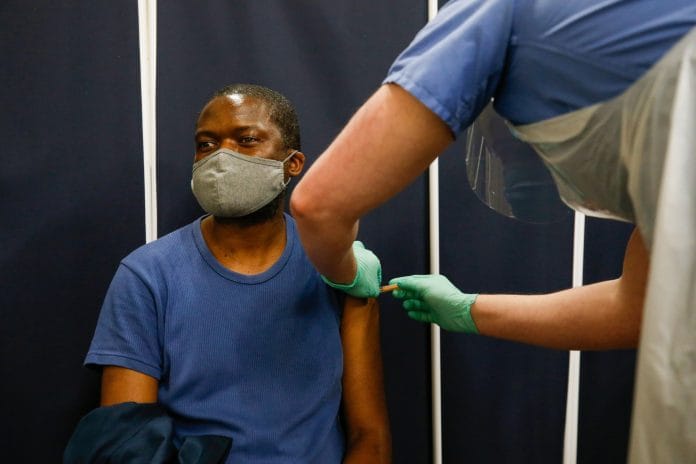New Delhi: People who have received two vaccine doses against Covid continue to have a risk of getting infected and spreading the Delta variant, especially in household settings, according to the results of a trial published Thursday in The Lancet Infectious Diseases publication.
However, the risk is still lower compared to people who are not vaccinated, the study by researchers from Imperial College London in the UK concluded. Vaccinated people were also found to clear the infection more quickly.
However, the peak viral load among vaccinated people is similar to that seen in unvaccinated people, which may explain why they can still readily pass on the virus in household settings.
“Vaccines are critical to controlling the pandemic, as we know they are very effective at preventing serious illness and death from Covid-19,” Ajit Lalvani of Imperial College London in the UK, who co-led the study, said in a statement.
“However, our findings show that vaccination alone is not enough to prevent people from being infected with the Delta variant and spreading it in household settings,” Lalvani said.
“The ongoing transmission we are seeing between vaccinated people makes it essential for unvaccinated people to get vaccinated to protect themselves from acquiring infection and severe Covid-19, especially as more people will be spending time inside in close proximity during the winter months,” he added.
The study
The study enrolled 621 participants, identified by the UK contact tracing system, between September 2020 and September 2021. All participants had mild Covid illness or were asymptomatic.
Researchers were able to measure the changes in the amount of virus in a person’s nose and throat by performing PCR tests on swab samples provided daily by each participant for 14–20 days.
A total of 205 household contacts of Delta variant index cases were identified, of whom 53 tested positive for Covid. Of the 205 contacts, 62 per cent received two vaccine doses, while 19 per cent had received one vaccine dose, and 19 per cent were unvaccinated.
Among household contacts who had received two vaccine doses, 25 per cent became infected with the Delta variant compared with 38 per cent of unvaccinated household contacts.
Among vaccinated contacts infected with the Delta variant, the length of time since vaccination was 101 days, compared with 64 days for uninfected contacts. This suggests that the risk of infection increased within three months of receiving a second vaccine dose — likely due to waning protective immunity.
Viral load declined more rapidly among vaccinated people infected with the Delta variant compared with unvaccinated people with delta, alpha, or pre-alpha.
However, the researchers note that vaccinated people did not record a lower peak viral load than unvaccinated people, which may explain why the Delta variant can still spread despite vaccination as people are most infectious during the peak viral load phase.
“Understanding the extent to which vaccinated people can pass on the Delta variant to others is a public health priority. By carrying out repeated and frequent sampling from contacts of COVID-19 cases, we found that vaccinated people can contract and pass on infection within households, including to vaccinated household members,” Anika Singanayagam, co-lead author of the study, said in the statement.
(Edited by Paramita Ghosh)
Also read: India finds at least 17 samples of Covid variant AY.4.2, which caused thousands of cases in UK






